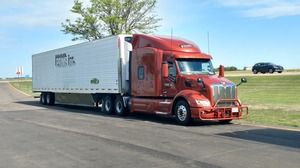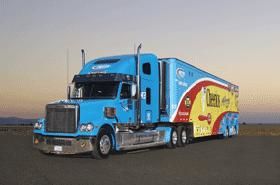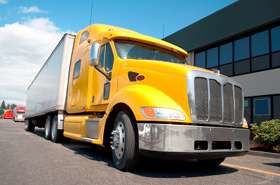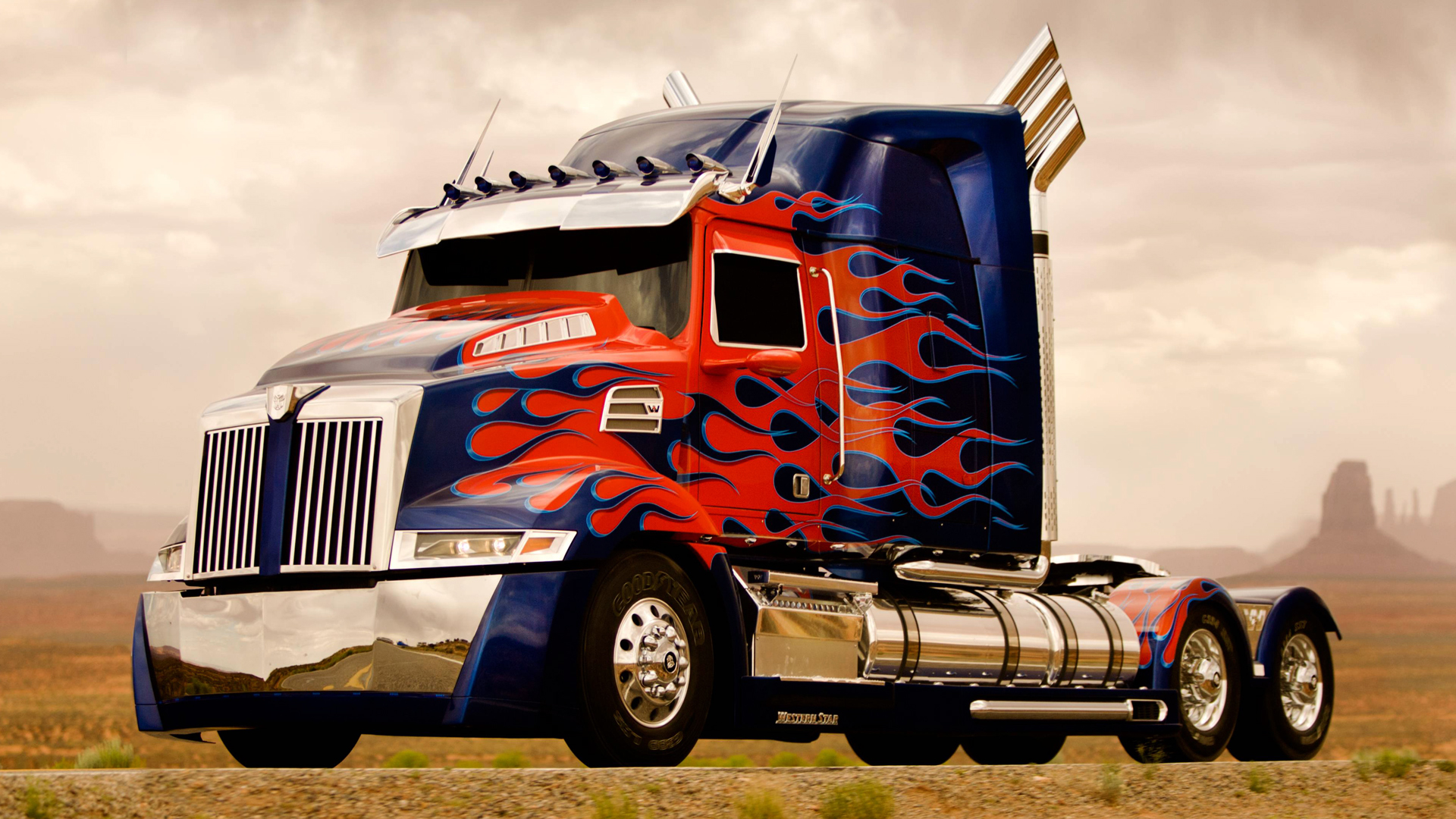High Winds Scare The S**t Outta Me.
Topic 6612 | Page 1

Best recommendation I can think of is if it is that windy, find yourself a place to shutdown and get out of the wind. If you are caught in it, then slow it down, steer into the wind if possible to present less of a profile for the wind to hit. Think of it as what we used to refer to in the Navy as sail area (hitting you from the side instead of front or back). The more flat area the wind has to hit, the greater the force it can exert onto your truck causing it to possibly tip over.
Also if you are very light (less weight in the trailer), the more likely the wind will be able to cause you to have a roll-over (less weight to hold you down).
Just some things to think about.
Ernie

. . . and, if there is room, travel in the lane on the side the wind is coming from (from the left? left lane) so if you are hit by a gust that starts to move you around you can steer away (into the other lane) to kill some of the momentum of the gust . . . but, basically, if the wind is too much, you're screwed . . . scares hell out of me too ...
Jopa




Just slow down if you feel your trailer getting pushed around.
OWI:
Operating While Intoxicated

At what point do y'all recommend shutting down?
I went through Wyoming for the first time (and only 2nd week driving as apprentice) and I got pretty damn nervous with the wind knocking me around and causing the truck to tilt a good 10-15 degrees. The warning signs were all 45+ but my trainer said not to worry about it because we were heavy and just keep going unless the signs changed to 55+.
I continued at 45-55 depending on how bad it was, and the same coming back a couple of days later, but I would like to know what some other experienced people have to say.

There are to many variables, to say what a safe wind speed is vs unsafe. I would just recommend that if it feels unsafe. Find a safe place to stop and wait for conditions to in prove.

Pulling empty doubles scares the **** out of me. Go slow. Regardless what your'e pulling.
Doubles:
Refers to pulling two trailers at the same time, otherwise known as "pups" or "pup trailers" because they're only about 28 feet long. However there are some states that allow doubles that are each 48 feet in length.

What's generally the reaction of the company if you get blown over? I mean, nothing you can really do right? Or are they going say, you should have gotten of the road and stopped?

Jared asked:
What's generally the reaction of the company if you get blown over? I mean, nothing you can really do right? Or are they going say, you should have gotten of the road and stopped?
Jared I meant to respond to this yesterday...work got in the way.
At least with Swift, 99 times out of 100 this is designated as a preventable accident, a roll-over which is considered very serious. There should really be no surprise when this occurs. Rather harsh and unforgiving, but reality. Preparation is key to prevention. Part of the daily trip-plan is to understand the weather forecast for the next 8-11 hours in the areas you will drive through and also the relative weight of your truck and center of gravity (ex: loaded floor to ceiling aka "cubed-out" could cause the center of gravity to be higher as opposed to a beverage load which is only going to be about 4' high, thus lowering the center of gravity). From my perspective, if the sustained wind speed is forecasted above 45mph and I am going to be empty, it's cause for concern and requires a great deal of caution; speed reduction, vigilant space management (avoid running in a pack of trucks or "convoy"), running in the lane that is pitched against the wind, and yes if need be and perhaps the best course of action, finding a safe place to shutdown.
This is a great example of how communicating with other drivers via CB radio can provide real-time information and updates on the situation. It could save your truck and possibly your life.
There are parts of the country and Interstates that are notorious for serious cross winds. As a driver gains experience, they quickly learn the areas that are prone to high winds and plan accordingly.
Interstate:
Commercial trade, business, movement of goods or money, or transportation from one state to another, regulated by the Federal Department Of Transportation (DOT).

Will be hauling a mere eight thousand pounds of potato chips across Elk Mountain tonight, this will be interesting.
New Reply:
New! Check out our help videos for a better understanding of our forum features

















Preview:








 TT On Facebook
TT On Facebook
Ok. Just finished my last hour of training driving. get to upgrade tomorrow. I have been in all sorts of conditions and thus far the only thing that really scares me is high cross winds. Trainer was not much help here. Maybe i am just making to big of a deal of it. Either way i got some questions. When in high winds, does it help to drive slower or faster? If you see your trailer start to tip is it better to slow down or speed up? Any advice would be appreciated. Thank you.